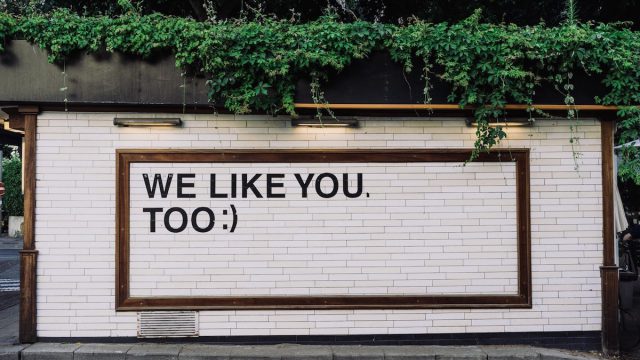Zuckerberg Agrees: The Newsfeed is Broken and the Shift to Private is On

Sometimes the best parties get so popular that they’re just not worth going to anymore.
That’s what happened to Facebook. In a public post on his profile, Mark Zuckerberg shared that they’re shaking things up by changing the fundamental premise of his company in order to remain relevant – in the process they may end up capturing a lot more than our photos.
Remember that Facebook was the one that originally got most of us onto social channels. MySpace, Friendster, and Hi5 all came before the big blue F, but they were still fringe sites where internet-types congregated. Facebook pushed internet-friending into the mainstream, and it shaped the way that we all share today.
Somewhere along the way, the basic building blocks of Facebook lost their edge. Wall-to-wall posting was replaced with the Newsfeed format, which opened up Liking, Sharing, and Algorithms. It spawned Trillions of posts and Billions of dollars in advertising, but it seems that even the most powerful advertising/social connection tool in history has become dull.
The Biggest Shift Since The Newsfeed Itself
The change that Zuck is talking about isn’t something that he’s come up with – he looked at the data and saw that people are flocking to private spaces to share online. Where we once wanted nothing more than to post our weekend photos in public where they’d get us the maximum number of Likes, we’re now more likely to share in groups, chats, and DMs, where only the people we want to hear from can see it.
Anyone who’s surprised by the shift in user behaviour hasn’t been paying attention. Back in January, Flynn wrote a post titled “Is Social Media Becoming Less Social?” and it called this shift. Last summer I wrote a post, “The Limitations That we Create When we Call it Social Media”, which pointed out that the real social parts all happen within communities, not out in the open.
What is unexpected is the fact that Facebook is doing such a hard 180 on their previous position. Though it seems to be their only real shot at remaining relevant, it’s not every day that you see a $500 Billion company’s CEO tell the world that their core product is fundamentally broken.
It’s So Much More Than DMs
The post hinted at some pretty significant features that will affect much more than just the way that we Like. Perhaps the most important is Facebook Currency. The plan here is to create a Coin that Facebook can use to facilitate purchases through its network across the world. Unlike Bitcoin, which is dependant on demand-based value because it is tied to no one and backed by nothing, the speculation is that Facebook will be backing its coin with a basket of global currencies, some of which may include the most powerful crypto options.
That’s important, because if you’re going to use Face-bucks (obviously not the actual name) to facilitate purchases from South Carolina to Sudan, then we can’t have wild fluctuations in its value that make it difficult to set prices and collect the right payments.
A Facebook-owned currency will open up the possibility of what Facebook really wants to see: Slowly morphing into the global version of WeChat. The Chinese app has not only become a place to talk, but to share and be advertised to as well. WeChat is everything: It’s a retailer, a mall, entertainment, and communication. In some instances, it’s even a bank.
That’s why Mr. Z is so excited to get away from the newsfeed. It’s not because, as he says in his post: “Privacy gives people the freedom to be themselves and connect more naturally.” The truth is he knows that if Facebook can lead our shift to private social networks, then they’ll own so much more than the way we share – they’ll own the way that we transact as well.
Comments by @profgalloway on Zuck’s effort to corner the market for communications (and payments) pic.twitter.com/Rn2UCDU0Fa
— Donut Shorts (@DonutShorts) March 10, 2019
So What?
The implications are significant, and not just in some theoretical way, but in ways that are going to affect how we all do business right away:
- The NewsFeed isn’t going away. People will do much less mindless scrolling, but when they do they’ll be looking for much more of what brands can create: High-quality video, news, pop culture, and shopping. The burden to create high quality, relevant content just went up because we can no longer get away with just fitting in alongside a friend’s grainy photos.
- Customer service within the Facebook universe is more important than ever. They plan is to stitch WhatsApp, IG DMs, and Messenger together, which will make managing the incoming volume more streamlined, but it won’t do the work for us. To take advantage of private, we’re going to need to get in there with the community and provide some real service to them.
- Social commerce is coming. This one should surprise no one, but even if Facebook doesn’t get their way and create a new global currency, then they will certainly create a seamless way to order and checkout from within their apps. We can already see the building blocks showing us in Facebook Events, and then of course Product Tags get us within inches of that eventuality.
The bottom line is that Facebook doesn’t care about your privacy, what they do care about is remaining useful, and they have more data and more brilliant analysts than anyone else in the world, so when they make a major shift like the one that Mark posted about, we should all take note.


